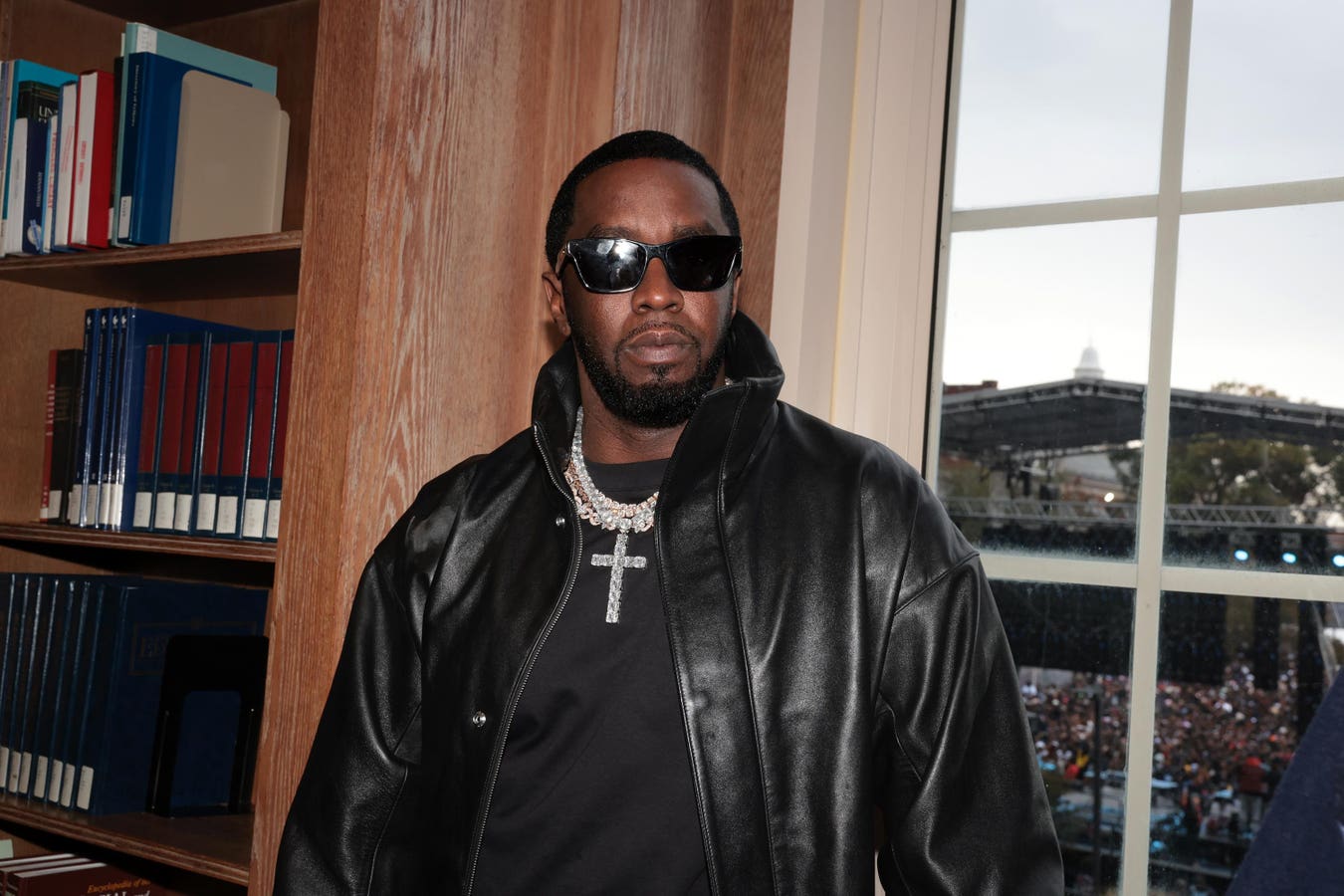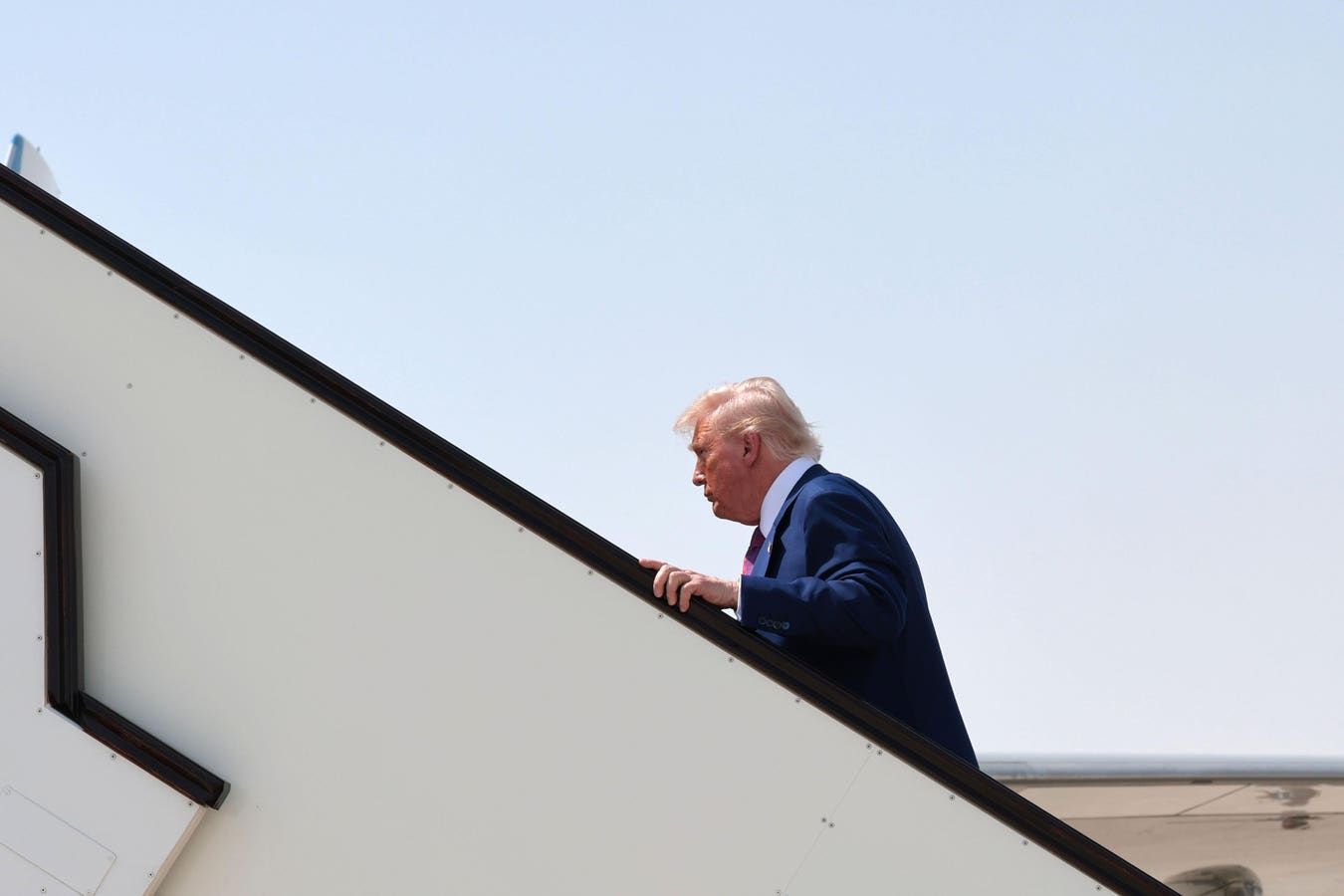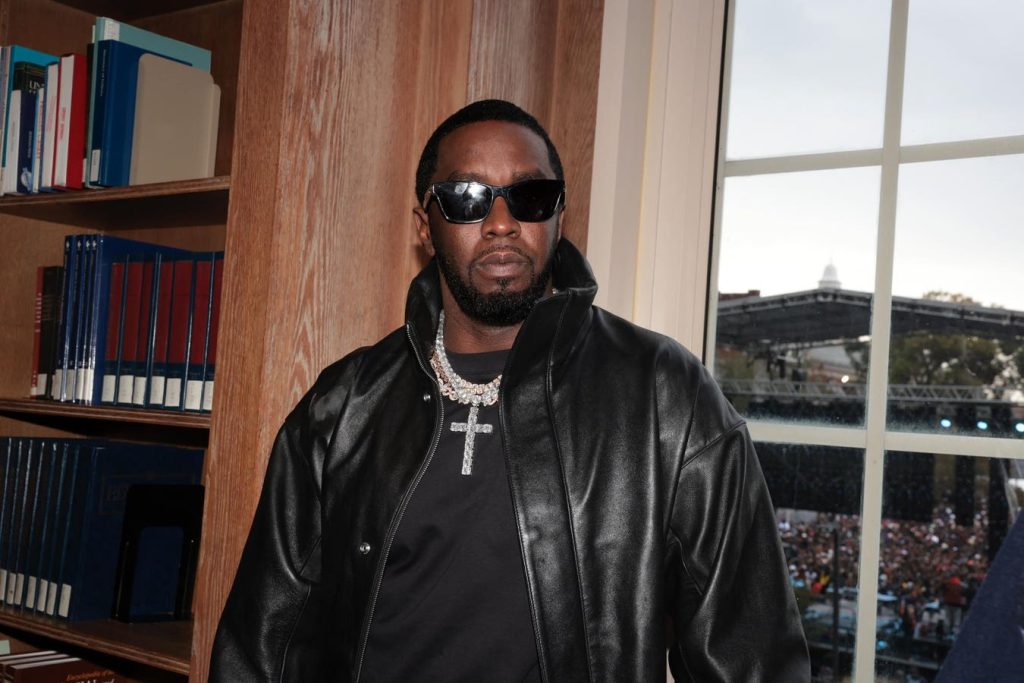Topline
The Supreme Court will hear oral arguments Thursday on the legality of President Donald Trump’s executive order restricting birthright citizenship, marking the court’s biggest case of the year, as its ruling will also determine how courts nationwide can respond to the president’s controversial policies.
Protesters against President Donald Trump’s move to end birthright citizenship stand outside the … More Supreme Court in Washington, DC, on May 15.
Key Facts
The Supreme Court will hear oral arguments in a group of consolidated lawsuits challenging Trump’s birthright citizenship order, which rescinds birthright citizenship for children born in the U.S. if their parents are not citizens or permanent U.S. residents.
The court will also more broadly consider nationwide injunctions that allow judges in a single court to block policies nationwide, as judges have used those injunctions to unilaterally block numerous Trump administration policies since the president took office.
Opponents of Trump’s birthright citizenship order argue it clearly violates the 14th Amendment of the Constitution, which grants citizenship to “all persons born or naturalized in the United States, and subject to the jurisdiction thereof.”
The Trump administration has relied on a novel legal theory claiming the “subject to the jurisdiction thereof” clause exempts children of non-citizens—an argument legal experts largely reject—and the government has more broadly claimed nationwide injunctions “[stop] the Executive Branch from performing its constitutional functions before any courts fully examine the merits of those actions.”
A ruling in Trump’s favor could create a patchwork of policies nationwide in which different states or regions would have different Trump administration policies in place, if judges can block policies only in the state or region they oversee.
How Will The Supreme Court Rule?
It’s still unclear how the Supreme Court will rule in the case, though justices could give some sense of their thinking during oral arguments Thursday. Legal experts have broadly decried the Trump administration’s order on birthright citizenship, denouncing the government’s legal stance as a “lunatic fringe argument,” as law professor Margaret Stock described it to NPR in 2018. “The argument is either a crazy theory or dishonest interpretation of the Constitution,” Harvard Law School professor Gerald Neuman told Harvard Law Today in January. Legal experts are more divided on the question of nationwide injunctions, however, noting there are legal arguments that support both allowing and outlawing them. “I haven’t seen good evidence that Congress intended to confer this authority on the district courts,” University of Michigan Law School professor Nicholas Bagley told Politico about nationwide injunctions, though he still opposed the birthright citizenship order. Multiple conservative-leaning justices on the Supreme Court have also signaled opposition to nationwide injunctions in the past, including Justices Samuel Alito, Neil Gorsuch and Clarence Thomas, though it remains to be seen what their thinking is on this case specifically, and how other justices could rule.
Crucial Quote
Trump lashed out against birthright citizenship on Truth Social on Thursday ahead of the court’s oral arguments, calling it “yet another point that leads to the dysfunction of America” and writing, “Birthright Citizenship was not meant for people taking vacations to become permanent Citizens of the United States of America, and bringing their families with them, all the time laughing at the ‘SUCKERS’ that we are!” The president also falsely alleged the U.S. is the only country with birthright citizenship; it is actually one of about 30 countries with the policy.
Key Background
Trump’s birthright citizenship order came to the Supreme Court after multiple judges repeatedly blocked his executive order in court. No judge has ruled in favor of it. The executive order was one of the first Trump issued after his inauguration in January, and is one of dozens of policies and actions that have faced legal challenges. The slew of court rulings against Trump administration policies has sparked widespread resistance on the right to courts and judges who rule against the president, as Trump and his allies have called for judges to be impeached and claimed judges cannot hamstring Trump’s executive power. Republicans in Congress have also introduced legislation that would limit courts’ ability to issue nationwide injunctions, which passed the House in April but faces longer odds in the Senate, where 60 votes are needed to pass it.









